tl;dr
LocalDateTime.parse( // Parse as a date-time lacking time zone or offset-from-UTC.
"12/01/2014 05:30:15 PM" , // Define a formatting pattern to match input. Case-sensitive formatting code. Use `h` lowercase for 12-hour clock, 0-12. Use uppercase `H` for 24-hour clock, 0-23.
DateTimeFormatter.ofPattern( "MM/dd/uuuu hh:mm:ss a" , Locale.US )
).format( // Generate a String in specific format. Generally better to let java.time localize automatically.
DateTimeFormatter.ofPattern( "MM/dd/uuuu hh:mm:ss a" , Locale.US )
)
java.time
The modern approach uses java.time classes that supplanted the troublesome old date-time classes.
Get the current moment in UTC. The Instant class represents a moment on the timeline in UTC with a resolution of nanoseconds (up to nine (9) digits of a decimal fraction).
Instant instant = Instant.now() ;
To see that same moment through the lens of a wall-clock time used by people of a certain region (time zone), apply a ZoneId to get a ZonedDateTime.
Specify a proper time zone name in the format of continent/region, such as America/Montreal, Africa/Casablanca, or Pacific/Auckland. Never use the 3-4 letter abbreviation such as EST or IST as they are not true time zones, not standardized, and not even unique(!).
ZoneId z = ZoneId.of( "Africa/Tunis" ) ;
ZonedDateTime zdt = instant.atZone( z ) ;
To generate a string in standard ISO 8601 format on any of these, call toString. The java.time classes use standard formats by default when paring/generating strings. So no need to specify a formatting pattern.
If you want other formats, use the DateTimeFormatter or DateTimeFormatterBuilder classes. You can specify a formatting pattern, but easier to let java.time automatically localize.
To localize, specify:
FormatStyle to determine how long or abbreviated should the string be.Locale to determine (a) the human language for translation of name of day, name of month, and such, and (b) the cultural norms deciding issues of abbreviation, capitalization, punctuation, separators, and such.
Example:
Locale l = Locale.FRENCH ;
DateTimeFormatter f = DateTimeFormatter.ofLocalizedDateTime( FormatStyle.FULL ).withLocale( l );
String output = zdt.format( f );
mercredi 14 février 2018 à 00:59:07 heure normale d’Europe centrale
Or, Locale.US & FormatStyle.SHORT.
2/14/18, 1:01 AM
Your custom format for your input is:
String input = "12/01/2014 05:30:15 PM" ;
DateTimeFormatter f = DateTimeFormatter.ofPattern( "MM/dd/uuuu hh:mm:ss a" , Locale.US ) ;
That input string lacks any indicator of a time zone or offset-from-UTC. So it is not a moment, not a specific point on the timeline. It represents a vague idea about potential moments along a range of about 26-27 hours. As such, we parse this input into a LocalDateTime lacking any concept of zone/offset.
LocalDateTime ldt = LocalDateTime.parse( input , f ) ;
ldt.toString(): 2014-12-01T17:30:15
Generate a string in that format.
String output = ldt.format( f ) ;
12/01/2014 05:30:15 PM
As others explained, the formatting codes are case-sensitive. If you want 24-hour time, use uppercase H. For 12-hour time, use lowercase h.
Note that the formatting codes in java.time are close to those of the legacy SimpleDateFormat but not exactly the same. Study the documentation and search Stack Overflow for many examples.
When exchanging date-time values as text, stick with the standard ISO 8601 formats.

About java.time
The java.time framework is built into Java 8 and later. These classes supplant the troublesome old legacy date-time classes such as java.util.Date, Calendar, & SimpleDateFormat.
The Joda-Time project, now in maintenance mode, advises migration to the java.time classes.
To learn more, see the Oracle Tutorial. And search Stack Overflow for many examples and explanations. Specification is JSR 310.
Using a JDBC driver compliant with JDBC 4.2 or later, you may exchange java.time objects directly with your database. No need for strings nor java.sql.* classes.
Where to obtain the java.time classes?
The ThreeTen-Extra project extends java.time with additional classes. This project is a proving ground for possible future additions to java.time. You may find some useful classes here such as Interval, YearWeek, YearQuarter, and more.
